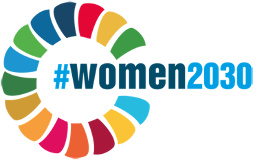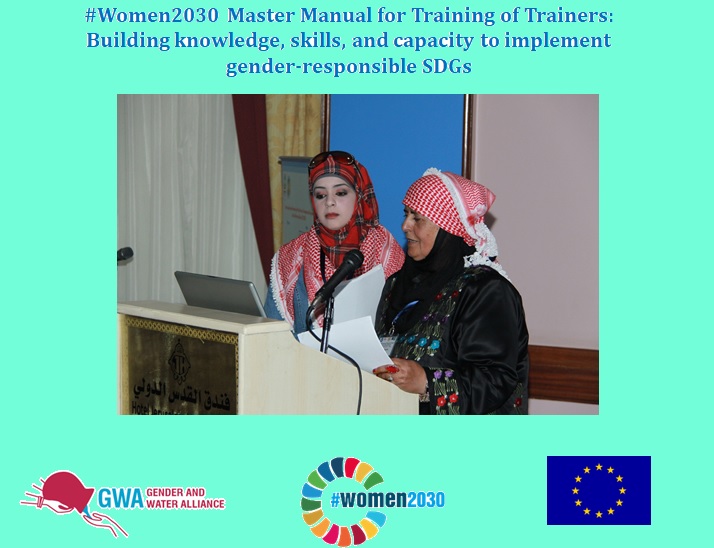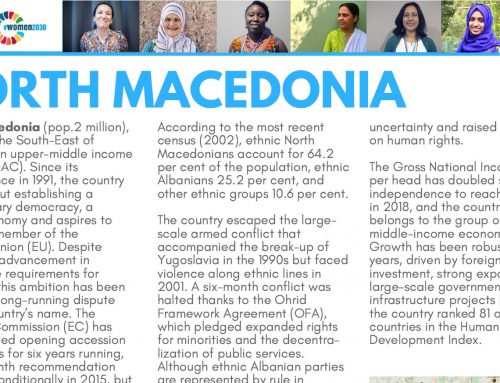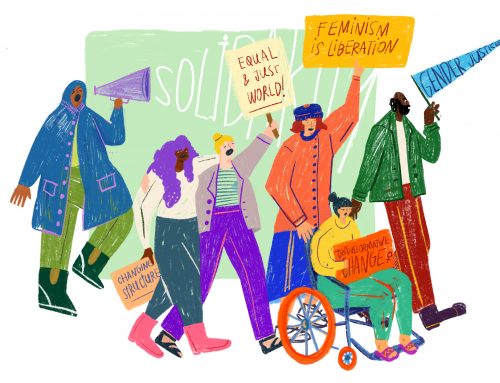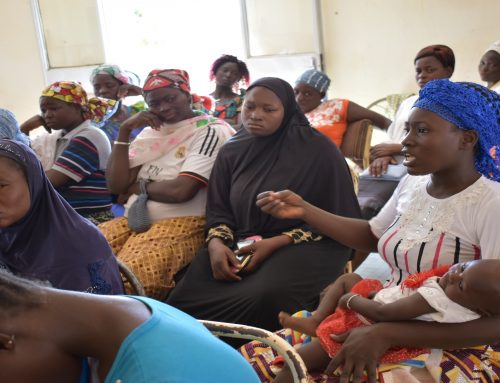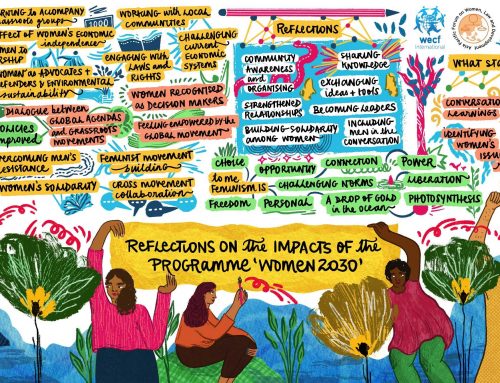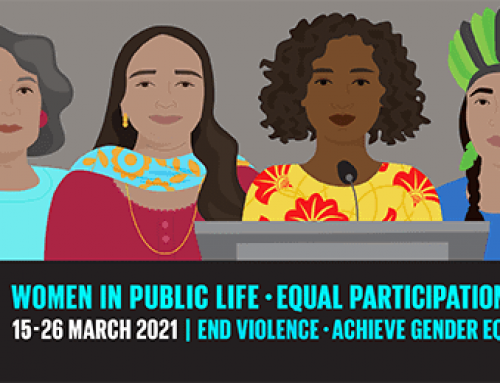This manual aims to build knowledge, skills, and capacity of Civil Society Organisation (CSO) partners of the #Women2030 programme, to foster change towards a gender-responsive implementation of the SDGs. It is a guideline and flexible tool for the Training of Trainers (ToT) and it is made up of 5 modules:
- Module 1: #women2030 approaches and the Agenda2030
- Module 2: Gender mainstreaming in key SDGs for the Programme #Women2030
- Module 3: Gender sensitive training and coaching skills
- Module 4: Mainstreaming gender into organizational policies
- Module 5: Advocacy and policy consultation
To strike a balance between equipping CSOs with information and skills that is practical and relevant for them, and utilizing the expertise of the five coordinating project partners (WECF, GFC, WEP, APWLD, and GWA), the manual focus on the gender dimensions of five core SDGs. These are SDG 5 (Gender and Empowerment), SDG 6 (Water and Sanitation for all), SDG 7 (Sustainable Energy), SDG 13 (Climate Action), and SDG 15 (Forests and Biodiversity). Besides the focus on these SDGs the manual also addresses other areas for institutional capacity building, including understanding gender and related concepts; training skills, organisational skills; and advocacy.
With its extensive background in developing resources and manuals for capacity building in gender, the Gender and Water Alliance (GWA) has led the compilation of this manual, with feedback and contributions from the 4 partner organisations.
Module 1 (ENGLISH): #women2030 approaches and the Agenda 2030
The aim of this module is to introduce the trainer of trainers (ToT) with #women2030 approaches and relevant concepts/ terminologies to include gender in the Agenda2030. A brief introduction to the manual, explaining the process on how this Training Master Manual has been written, is also included in this module.
The module consists of three sessions:
- Session 1.1: Gender concepts and related terminologies
- Session 1.2: Gender mainstreaming and the Programme #Women2030 approaches
- Session 1.3: Gender mainstreaming into the Agenda2030
Module 2 (ENGLISH): Gender mainstreaming in key SDGs
This module consists of five sessions, each covering the gender dimensions of one of five SDGs respectively, which align with the aims and work of the #Women2030 partners. The main objective of this module is to increase the understanding of the trainers and target groups why gender equality and empowerment of women and girls are critical for achieving the Agenda 2030. The sessions are divided as follows:
- Session 2.1: SDG 5: Gender Equality and Empowerment of Women and Girls
- Session 2.2: SDG 6: Gender and Universal Access to Water and Sanitation
- Session 2.3: SDG 7: Gender and Access to Reliable, Affordable and Clean Energy
- Session 2.4: SDG 13: Using a Gender Perspective in Climate Action
- Session 2.5: SDG15: Gender, Forests and Biodiversity
Module 3 (ENGLISH): Gender-sensitive training and coaching skills
The objective of this module is to equip the trainer with key information and tools to develop and facilitate participatory training and workshops in a gender-sensitive manner. Mostly, it will draw attention to participatory approaches and techniques that have been tried and tested by the five partners in this project in different locations and contexts around the world – thus adding the value of experiential and validated learning. The module is divided into 2 sessions:
- Session 3.1: Gender-sensitive training approaches and use of tools to promote participation and shared learning.
- Session 3.2: Planning a participatory workshop from start to end. Coaching and mentoring.
Module 4: (ENGLISH): Mainstreaming gender into organizational policies
The objective of this module is to equip the trainer with key information and tools to guide participants on how to mainstream gender into their organisational policies and procedures, so as to make their work more responsive to the needs and concerns of the poor and marginalized groups in their local area. This module is divided into 2 sessions:
- Session 4.1: Gender-sensitive organizational Development for NGOs and CSOs
- Session 4.2: Gender in development planning

